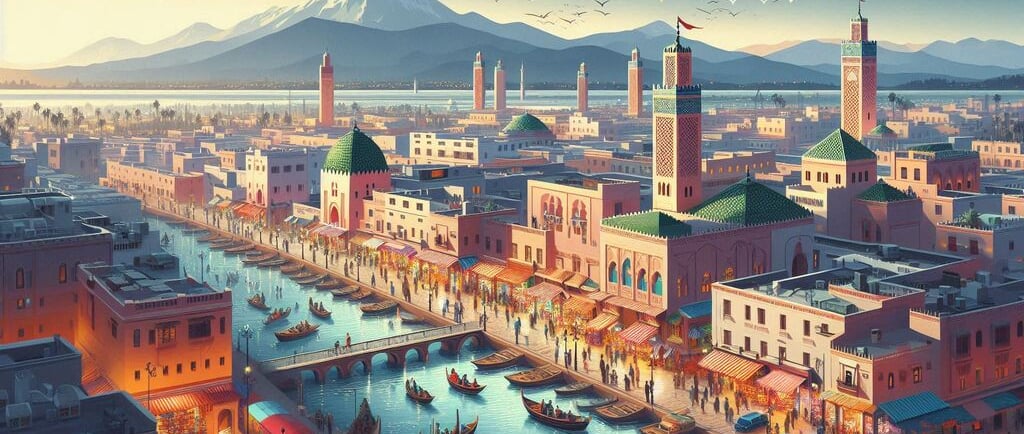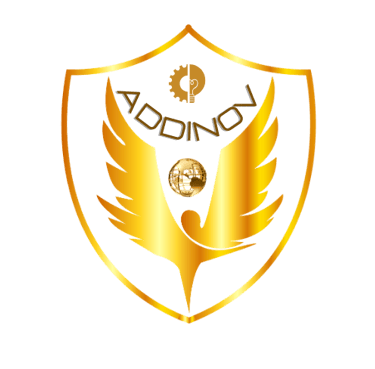Let us collaborate to foster global growth and development together.
Trade Opportunities in Morocco: An In-Depth Market Analysis
Discover the thriving trade opportunities in Morocco with our comprehensive market analysis. Learn about key industries, economic growth, and investment potential.
10/31/20243 min read


Trade Opportunities in Morocco: An In-Depth Market Analysis
Meta Description: Discover the thriving trade opportunities in Morocco with our comprehensive market analysis. Learn about key industries, economic growth, and investment potential.
Morocco’s strategic location, robust economic growth, and evolving trade landscape make it a promising hub for global trade and investment. Whether you’re a business leader seeking new markets or an investor exploring opportunities, Morocco’s economic environment offers numerous advantages. In this article, we’ll delve into the trade opportunities available, key industries, and actionable insights for market entry.
Why Morocco is a Rising Trade Hub
1. Strategic Location Morocco’s location at the crossroads of Europe, Africa, and the Middle East offers unparalleled connectivity. The country’s modern ports, including the Tanger Med port, enable efficient access to key global markets. Businesses benefit from Morocco’s trade agreements with the European Union, the United States, and African countries under the African Continental Free Trade Agreement (AfCFTA).
2. Political and Economic Stability With a stable government and a growing economy, Morocco provides a conducive environment for trade. The country’s GDP grew by 6.5% in 2021, and steady growth continues, driven by sectors such as agriculture, manufacturing, and renewable energy.
Key Industries Driving Trade Opportunities
1. Renewable Energy As a leader in renewable energy in Africa, Morocco has ambitious targets to produce 52% of its electricity from renewables by 2030. Projects like the Noor Solar Power Station, one of the largest in the world, illustrate the country’s commitment. This creates opportunities for businesses in solar, wind, and green technology sectors.
2. Agriculture Agriculture remains a cornerstone of Morocco’s economy, accounting for approximately 15% of GDP. The Plan Maroc Vert initiative has modernized the sector, emphasizing exports like citrus, olives, and fresh produce. International companies can explore opportunities in agricultural technology and export partnerships.
3. Manufacturing and Automotive Morocco has become a manufacturing hub, especially for automotive and aeronautics industries. Companies like Renault and Peugeot have established production plants, making the country Africa’s leading exporter of cars. The government’s Industrial Acceleration Plan offers incentives for manufacturing ventures.
4. Tourism Tourism is a vital sector, contributing to 7% of GDP pre-pandemic. As Morocco recovers, there’s significant potential for investment in sustainable tourism, luxury hospitality, and travel technology.
How to Navigate Morocco’s Market
1. Understand Local Regulations Regulatory requirements in Morocco, particularly around import/export duties and standards, are essential to understand. Partnering with local experts or consulting with the Moroccan Investment and Export Development Agency (AMDIE) can ease this process.
2. Establish Strong Partnerships Building relationships with local businesses can facilitate smoother market entry. Joint ventures, collaborations, and franchising are common strategies to gain a foothold in Morocco.
3. Leverage Incentive Programs Morocco offers tax incentives and free trade zones for foreign businesses. Areas like Tangier and Casablanca are hotspots for investors, offering modern infrastructure and business-friendly environments.
Challenges to Consider
While Morocco offers significant potential, it’s essential to recognize challenges:
Cultural Differences: Understanding Morocco’s unique business culture is crucial. Building trust and personal connections is key to successful partnerships.
Bureaucratic Hurdles: Despite improvements, navigating administrative processes can be time-consuming. Local partnerships or advisory services can mitigate delays.
Competition: Morocco’s strategic appeal means intense competition, particularly in sectors like manufacturing and renewable energy.
Success Stories: Businesses Thriving in Morocco
1. Renault’s Growth The automotive giant’s Tangier facility is a testament to Morocco’s appeal. With state-of-the-art production lines and proximity to export markets, Renault has leveraged Morocco’s infrastructure and skilled workforce to grow its footprint.
2. OCP Group’s Expansion Morocco-based OCP Group, a global leader in phosphates and fertilizers, illustrates the potential in leveraging local resources. By partnering with international markets, OCP drives significant export revenue for the country.
Future Prospects
As global trade evolves, Morocco continues to strengthen its position as a regional powerhouse. Emerging sectors like tech startups and logistics further diversify opportunities, creating a dynamic environment for investment. Additionally, the AfCFTA’s implementation is set to enhance Morocco’s role as a gateway to African markets.
Final Thoughts
Morocco’s trade opportunities stem from a unique blend of strategic location, robust industries, and an investor-friendly climate. Businesses looking to expand globally should consider Morocco as a top destination. Start by researching industry-specific opportunities, forging local connections, and leveraging incentives for a successful entry.
Call to Action: Ready to explore the Moroccan market? Leave a comment below with your questions or insights, and check out our related article on Africa’s Emerging Trade Opportunities.
Innovation
Cutting-edge solutions for industrial efficiency and productivity.
© 2024. All rights reserved.


